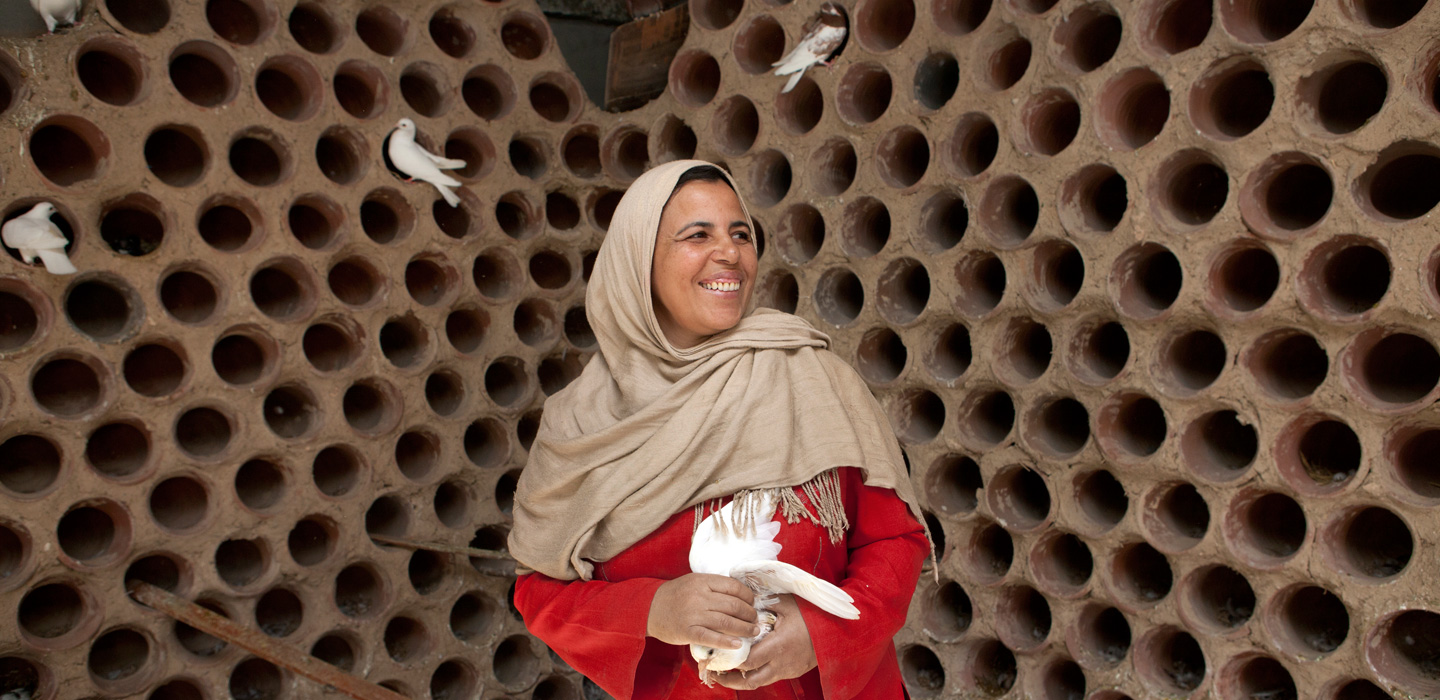These numbers prove that rural women are crucial for a better future. But they're not getting what they need to succeed
IFAD Asset Request Portlet
Asset Publisher
These numbers prove that rural women are crucial for a better future. But they're not getting what they need to succeed
Estimated reading time: 3 minutes
Worldwide, 43% of agricultural workers are women.
Yet despite being largely responsible for the food on our farms and on our tables, women don’t have access to the same resources as men.
Without access to land, finance, training, inputs and equipment, women can’t produce effectively, achieve financial stability or food security, or grow their businesses.
Why does this matter? If women farmers had the same access to productive resources as men, 100–150 million people would be lifted out of hunger, which would also make them more resilient to the climate crisis.
That's why IFAD creates opportunities for women to access what they need, such as this project in Nigeria that provides women with seeds and credit.
Globally, women represent only 15% of all landholders.
Though almost 1 in 2 farmers are women, they are much less likely than men to have legal title to the land they cultivate. Indeed, although 164 countries technically recognize women’s right to own, use and make decisions about land, social norms mean that these rights are accessible in only 52 of these countries.
Why does this matter? When women don’t own the land they tend, their main source of income and food is uncertain, and they cannot make critical decisions about managing it sustainably in the face of the climate crisis.
That's why IFAD helps get gender equality on the record. One of the projects we support in Ethiopia, for example, helps married couples register as co-owners on land certificates so they can decide together how to use the land and manage their income.
Thanks to IFAD’s support, the women of this rice cooperative now have access to the right equipment. They’ve been able to increase their production 10-fold, and many of them now earn in one day what they used to earn in a month.
As little as 8% of overseas aid goes to projects focused primarily on gender equality.
What's more, only 1.7 per cent of all climate finance reaches small-scale producers in developing countries.
All too often, governments and donors bypass women’s livelihoods and expertise when planning and funding rural development programmes and climate change adaptation efforts. Structural inequalities make women disproportionately vulnerable to climate change impacts, yet they’re the ones who get the least assistance.
Why does this matter? If women aren’t able to build sustainable livelihoods and become economically empowered, they and their families are less resilient to the effects of climate change.
That’s why women’s empowerment is a major focus of ASAP+, IFAD’s new climate change financing mechanism. We’re mobilizing US$500 million to help 10 million people build resilience and adapt to climate change.
4 in 5 people forced to leave their homes due to climate disasters are women.
Rural women in developing countries are amongst those who are worst affected by climate change. Many of them depend on agriculture for their livelihoods, so they’re also more vulnerable to climate-related effects on agricultural productivity. When disasters hit, women are more likely to die or lose essential services.
Why does this matter? At times of crisis, the work of keeping a household going often falls to women. During the COVID-19 pandemic, women's household burdens increased, with little recognition or reward. And as climate change creates more frequent disasters, women will continue to bear the brunt of the fallout.
That's why IFAD-supported projects get women involved in community decisions on climate resilience and adaptation. In Kenya’s Upper Tana region, women make up 65 per cent of community associations established to sustainably manage forests while protecting local livelihoods.
Explore all of IFAD's work on gender and climate change.
Publication date: 07 March 2022